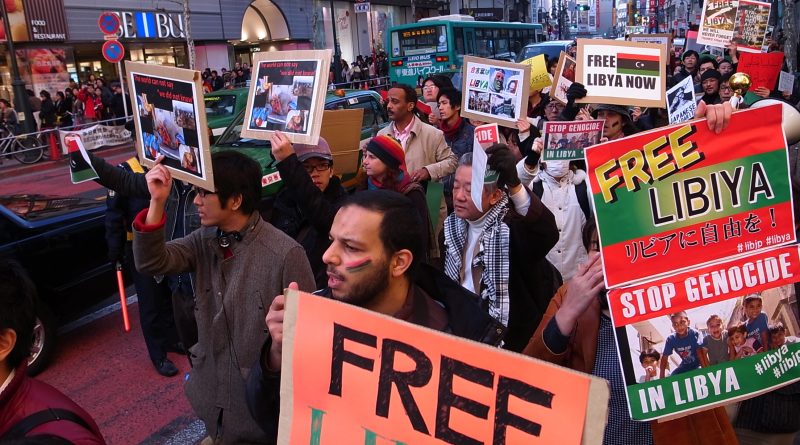Focus on Social Media Mobilization: Facebook wars in Libya
By Stephanie Miller
Staff Writer
As rival factions continue to decimate Libya’s capital and combatants take up assault rifles and grenade launchers, a new kind of street fighter emerges – the keyboard warrior.
Having previously played an integral role in rallying protests against the regime of former dictator Muammar Gaddafi during the 2011 Arab Spring, Facebook continues to serve as the primary social media platform of choice in Libya. These days, however, it serves not as an instrument of change, but a weapon capable of mass destruction.
Armed with a functioning laptop and a Wi-Fi signal, both militants and civilians take to social media to either dispel or perpetuate intelligence and propaganda – whichever best suits their aligned group’s agenda.
According to a report published by Amnesty International, armed militias utilize Facebook to track and dispatch those who speak up against violent atrocities, including women’s activists and journalists.
In Benghazi, former CIA asset and current warlord Khalifa Hafter orders an elite cyber-unit affiliated within his Libyan National Army to scour the site looking for the identities of dissenters and suspected Islamists. They also use it to mount disinformation campaigns against one another and recruit new soldiers.
The RADA Special Deterrence Force, a government-aligned militia group, specifically uses Facebook to publicize current events. On September 10, RADA published photographic evidence on their Facebook site of the recent suicide bombing of Libya’s National Oil Corporation. Al Jazeera would later report that the attack left at least 10 injured, several dead, and indicated that the suicide bombers’ had connections to ISIL, which is slowly regaining traction in northern Libya.
Corruption also plays a role in the crisis. Due to militia commanders abusing their access to Libya’s Central Bank by buying U.S. dollars at official rates as opposed to the higher street prices, civilians often take to Facebook and begin to circulate forged documents in attempts to undermine the value of the institution.
The New York Times reported that users also post fake news or battle guidance. In one particular discussion group, a user going by the handle ‘Narjis Ly’ posted maps and coordinates to a rival group’s airbase, writing “From the traffic light at Wadi al-Rabi, it is exactly 18 kilometers to the runway, which means it can be targeted by a 130 mm artillery.”
After years of nothing but propaganda and a constant state of terror under Gaddafi, it comes as no surprise that the public has turned to social media as a means of keeping up to date on the latest news.
Because of Libya’s complete lack of a functioning central government, almost all of its active newspapers and television stations are connected to various militant groups – the radio stations Voice of Free Libya historically aligned itself with anti-Gaddafi forces, and now publicly supports various rebel groups around the cities of Bayda, Benghazi, and Misrata.
What media outlets are not tied to political factions are most likely run by foreign powers: the radio station Libya FM is based in Cairo, Egypt, and Libya TV is owned and operated out of Doha, Qatar.
As outlined in their Community Standards, Facebook does not allow organizations or individuals involved in violent or organized criminal activity to maintain active accounts. The company insists that it polices its Middle East and North African platforms with “teams of Arabic-speaking content reviewers” and “is developing artificial intelligence to pre-emptively remove prohibited content”, states the New York Times. However, Facebook is still under intense scrutiny for its role in the promotion of illegal arms dealing.
In an official statement, former Libyan information minister Mahmud Shammam addressed his country’s continuing Facebook Wars, calling for an end to deliberate disinformation and the promotion of violence. Shammam distributed his impassioned declaration, ironically, over Facebook.
“The most dangerous, dirty war is now being waged on social media and some other media platforms. Lying, falsifying, misleading and mixing facts. Electronic armies are owned by everyone, and used by everyone without exception.”

